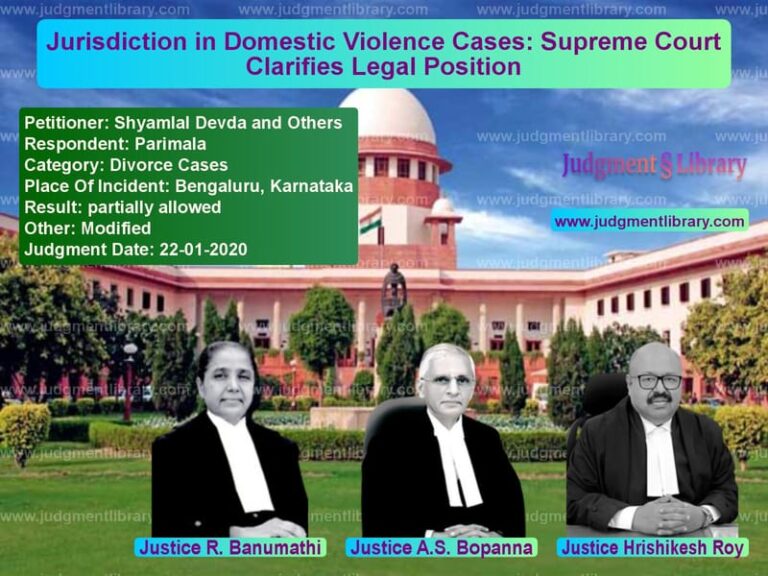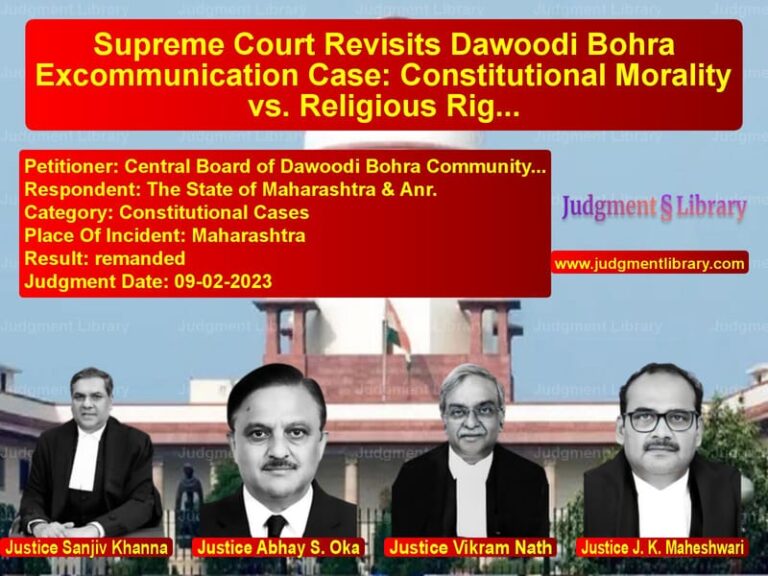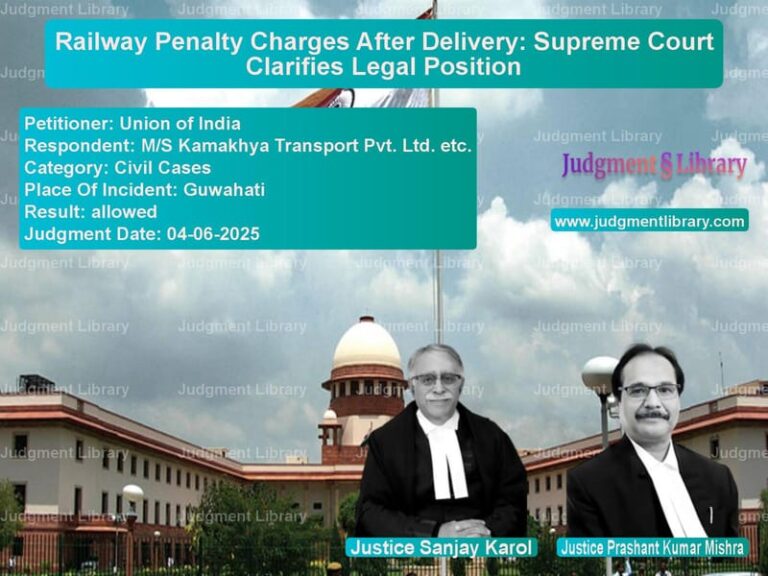Supreme Court Ruling on Service Tax for Works Contracts Prior to 2007
The Supreme Court of India recently ruled on a series of appeals concerning the levy of service tax on composite works contracts before the introduction of the Finance Act, 2007. The judgment clarified that service tax could not be imposed on such contracts before the amendment that explicitly included works contracts under the tax net.
Background of the Case
The appeals involved multiple companies, including Total Environment Building Systems Pvt. Ltd., YFC Projects Pvt. Ltd., G.D. Builders, National Building Construction Corporation Ltd. (NBCC), Unitech Ltd., and Larsen and Toubro Ltd., among others. These companies challenged the imposition of service tax on works contracts before 2007.
The Finance Act, 1994, originally governed service tax in India. However, it was only in 2007 that an amendment introduced Section 65(105)(zzzza), explicitly bringing works contracts under the service tax regime. The core issue was whether the government could levy service tax on such contracts before this amendment.
Legal Proceedings and Arguments
The cases reached the Supreme Court after various High Courts and tribunals had issued conflicting rulings. The government argued that service tax was always applicable to works contracts and that the 2007 amendment was merely clarificatory. The companies, on the other hand, contended that there was no legal basis for taxing composite works contracts before 2007.
Petitioners’ Arguments
- The companies argued that the absence of a specific provision for works contracts in the Finance Act, 1994, meant that no service tax could be imposed before 2007.
- They cited previous Supreme Court judgments, particularly in Commissioner, Central Excise and Customs, Kerala vs. Larsen and Toubro Limited (2016), which held that service tax was not applicable to indivisible works contracts before the Finance Act, 2007.
- The companies further argued that if the tax were valid, Parliament would not have needed to amend the Finance Act in 2007 explicitly.
Respondents’ Arguments
- The government, represented by Additional Solicitor General Ms. Madhavi Divan, contended that there was already a mechanism for segregating the service and goods components in a works contract before 2007.
- It argued that the Finance Act, 1994, contained the necessary provisions for taxing the service element of works contracts and that the 2007 amendment was merely a clarification.
- The government also relied on past Supreme Court judgments, including State of Madras vs. Gannon Dunkerley & Co. (1959) and T.N. Kalyana Mandapam Assn. vs. Union of India (2004), to support its case.
Supreme Court’s Observations
The Supreme Court, led by Justices M.R. Shah and B.V. Nagarathna, ruled in favor of the petitioners. The Court reaffirmed its earlier judgment in the Larsen and Toubro case, holding that service tax could not be levied on composite works contracts before 2007.
The Court noted:
“The Finance Act, 1994, did not contain a clear mechanism to tax works contracts. The 2007 amendment introduced a specific provision for this purpose. The contention that service tax was always applicable is incorrect.”
The Supreme Court also emphasized the principle of stare decisis (respect for precedent) and ruled that reopening settled law would create uncertainty in taxation.
Supreme Court’s Verdict
The Court allowed the appeals and set aside the judgments of the respective High Courts and tribunals that had upheld the levy of service tax on works contracts before 2007. The key rulings included:
- Service tax was not leviable on composite works contracts before the 2007 amendment.
- Decisions of the High Courts and tribunals affirming such a tax were quashed.
- All assessment orders levying service tax for the pre-2007 period were annulled.
However, the Court rejected the government’s request to reconsider the Larsen and Toubro decision, citing the need for legal certainty.
Impact of the Judgment
The Supreme Court’s ruling has significant implications for businesses and tax authorities:
- It provides relief to companies that had been subjected to service tax on works contracts before 2007.
- The judgment reinforces legal clarity in taxation matters, ensuring that tax authorities cannot impose retrospective taxes without clear legislative backing.
- It sets a precedent for future tax disputes where government authorities attempt to interpret laws beyond their clear textual meaning.
By reaffirming its earlier decision, the Supreme Court has ensured consistency in tax jurisprudence and prevented unwarranted retrospective taxation.
Petitioner Name: M/s. Total Environment Building Systems Pvt. Ltd. & Ors..Respondent Name: Deputy Commissioner of Commercial Taxes & Ors..Judgment By: Justice M.R. Shah, Justice B.V. Nagarathna.Place Of Incident: India.Judgment Date: 02-08-2022.
Don’t miss out on the full details! Download the complete judgment in PDF format below and gain valuable insights instantly!
Download Judgment: ms.-total-environme-vs-deputy-commissioner-supreme-court-of-india-judgment-dated-02-08-2022.pdf
Directly Download Judgment: Directly download this Judgment
See all petitions in Tax Evasion Cases
See all petitions in Banking Regulations
See all petitions in Judgment by Mukeshkumar Rasikbhai Shah
See all petitions in Judgment by B.V. Nagarathna
See all petitions in allowed
See all petitions in Quashed
See all petitions in supreme court of India judgments August 2022
See all petitions in 2022 judgments
See all posts in Taxation and Financial Cases Category
See all allowed petitions in Taxation and Financial Cases Category
See all Dismissed petitions in Taxation and Financial Cases Category
See all partially allowed petitions in Taxation and Financial Cases Category







